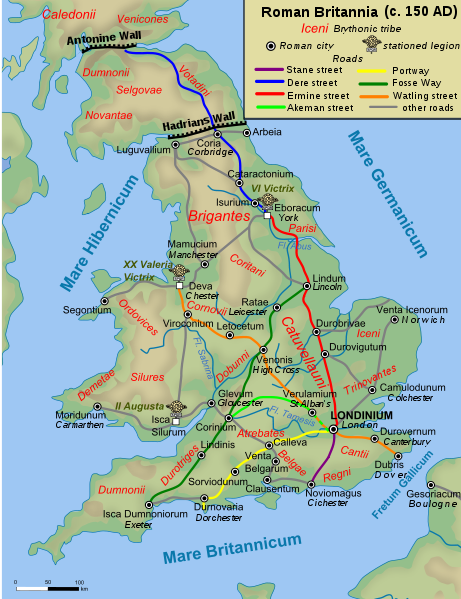August 11, 2011 – In England archaeological work is split between archaeologists and thousands of volunteers: While archaeologists excavate promising locations, thousands of volunteering detectorists survey the soil of those areas, where no important trove is expected. Sometimes this cooperation shows incredible results. Recently two detectorists have found a treasure trove of ca. 100 Roman coins in Devon. Further investigations have brought to light a settlement close by. And this will change our view of the Roman colonization of England. Apparently the Romans have proceeded further West than we have thought.
Map of Roman Britain. Source: Wikipedia.
The two detectorists were examining a field about 40 miles west of Exeter. First they found one Roman coin, then ten… And in the end they had collected nearly 100.
Until now Isca Dumnoniorum – how Exeter was called in Roman times – was thought to be the most western outpost of the Empire. This has changed with the new situation. More archaeological investigations have revealed two graves and evidence of a Roman settlement, which will be excavated soon. Sam Moorhead, National Finds Advisor for Celtic and Roman coins speaks about the most important discovery for centuries. And he assumes that this is just the beginning. Further research will rewrite the history of the part the Romans have played in the West of England.
The engagement and the enthusiasm of thousands of volunteers have made these new results possible.
More information you will find at the site of the Portable Antiquity Scheme. Please click here.
There has been an article in Mail online. For reading it, click here.




